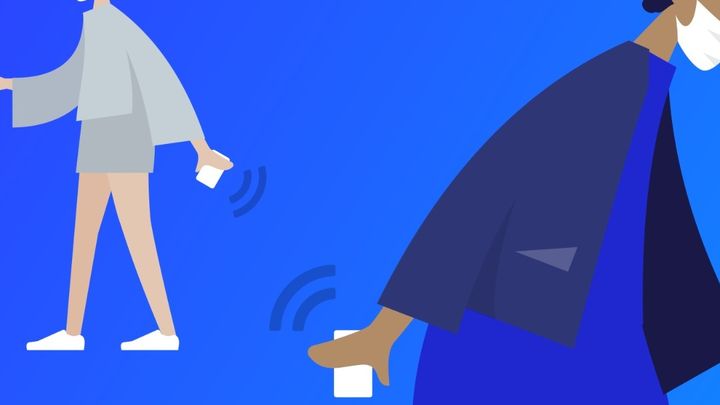
Improve Covid-19 Digital Contact Tracing
An app that can help notify you of exposure to someone with Covid-19? Digital Contact Tracing (DCT) tools can play an important role in keeping people safe... but only if they're done well.
As thousands of public health agencies rush to develop these tools, the quality and effectiveness varies widely. We're encouraging the sharing of the most secure, private and effective code across public health groups.
Help us as we help society reopen more quickly.
North America can’t reopen without a significant increase in testing for and tracking the Covid-19 virus. Based on the experience of countries which have most successfully contained the outbreak, it's clear a significant upgrade is required to the tools public health authorities can use for understanding and tracking the spread of the virus. That's where digital contact tracing (DCT) comes in.
Contact tracing is an approach to public health and disease containment that has been used for every major outbreak in the last 50 years. DCT uses the same general tactics, only it applies them through personal electronic devices as a highly effective means to help track the potential spread of infection from person to person.
Learn more about what Digital Contact Tracing is and how it works here: https://mpln.net/36naUHX
How does Digital Contact Tracing work?
Using secure Bluetooth technology and an open protocol called DP-3T, mobile devices create personal “keys”, which track when individuals come in close contact with one another. In the event an individual contracts the Covid-19 virus or even exhibits symptoms that indicate with a certain likelihood they have it, that individual can trigger an alert in the system which will flag the potential spread for any other keys that they came in close contact with in the last 14 or 21 days. With an early and wide-spread notification, all potentially affected people can take steps to mitigate the spread including more restrictive self-quarantine, likely before ever showing symptoms, and in this way help slow the spread of the disease.
Contact tracing is a proven approach to assist with containment and one that, with the advent of new technologies in the past decade, can be extremely effective in this scenario if applied correctly.
How can I help with DCT?
Fortunately, as a population we have been given a leg-up in the ability to create rapid adoption of a solution: a rare and powerful partnership between Google and Apple was announced recently that can help ensure this works with the 88% of the North American population who own a smartphone. But this won't be enough. A crucial element of making this initiative a success will be high quality open-source development that helps connect the right information to the right people— health agencies and support networks chief among them
If we can support the sharing of code across digital contact tracing initiatives, then we'll get these tools into the hands of health care experts sooner and at a higher quality. That's why we're seeking crowdfunding contributions to a $250k USD bounty program for code contributors. Our goal is to raise this $250k USD fund by July 15th.
The bounty program will fund hundreds of independent developers to contribute their time and code to these initiatives, helping to support a community that—like so many others at this challenging time—has seen large losses to employment opportunities while they help support the global community through independent work.
A contribution of $20, $50 or $100 makes all the difference to getting this started. All of the money will go directly to paying the people doing the work— skilled developers working hard to create a meaningful solution for a serious public health need. We won’t personally know them, that’s how open-source works, but we’ll be proud to help fund their work. Our long term objective is to support public health, health systems and eventually consortia of the hardest hit industries as they harness and harmonize digital contact tracing efforts.
What else do I need to know about DCT?
DCT can have a significant impact on managing the spread of the Covid-19 virus, but for it to work large portions of the population (roughly 80% according to some research) would need to participate in an opt-in program. If you've heard about it in the news, then you've likely heard from potential users who are already voicing concerns around privacy and information sharing. One approach to mitigating these concerns is to make a DCT program completely opt-in and extremely transparent, with user-driven insights steering the development. By setting clear guidelines and limits on contact tracing protocols and applications, we can better achieve the kind of mass adoption necessary for this technology-focused solution to work.
Furthermore, as of the creation of this page, the American Civil Liberties Union (ACLU) has voiced support for contact tracing initiatives, stating: “Use limitation, data destruction, voluntary participation, transparency and ‘no mission creep’ are the main policies that should be a focal point for the adaptation of any widespread contact tracing protocol,” adding that “[T]here are several TACT [contact tracing] proposals that aim to be privacy-friendly including DP-3T, PACT, TCN, and the Apple and Google proposal.”
There is a way to do this without comprising individual liberties, and that’s where development energies need to be focused.


